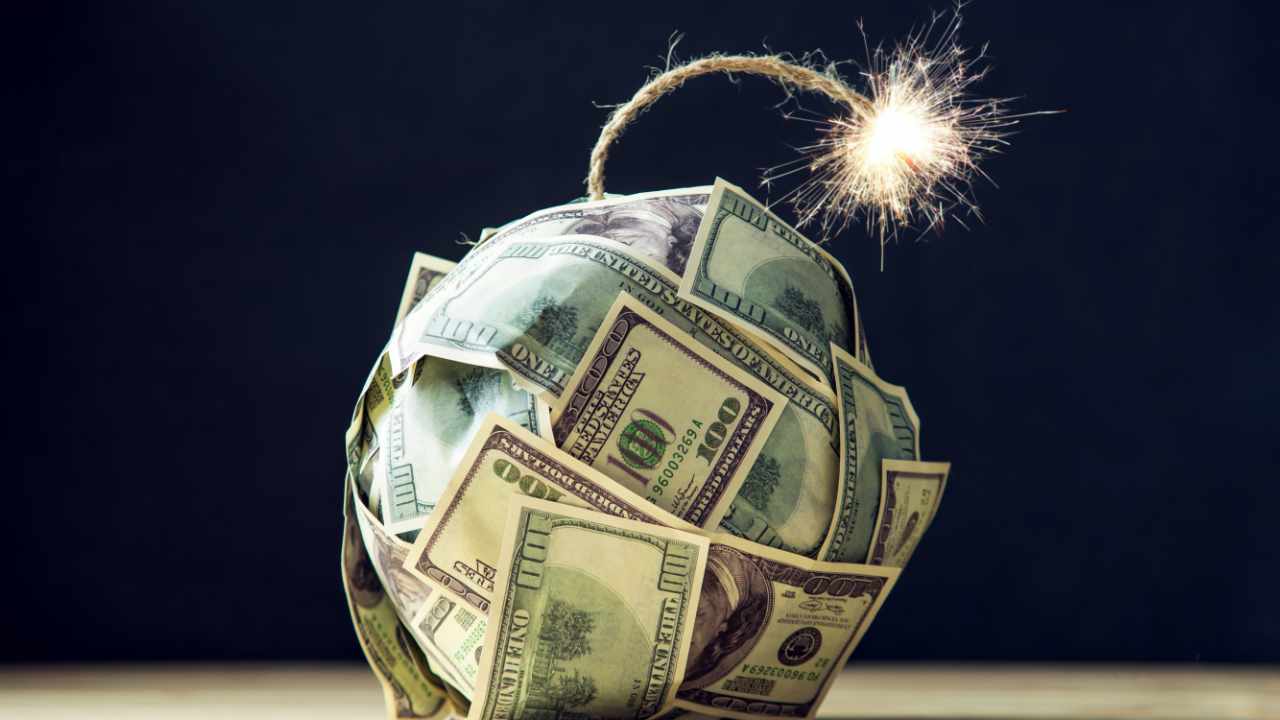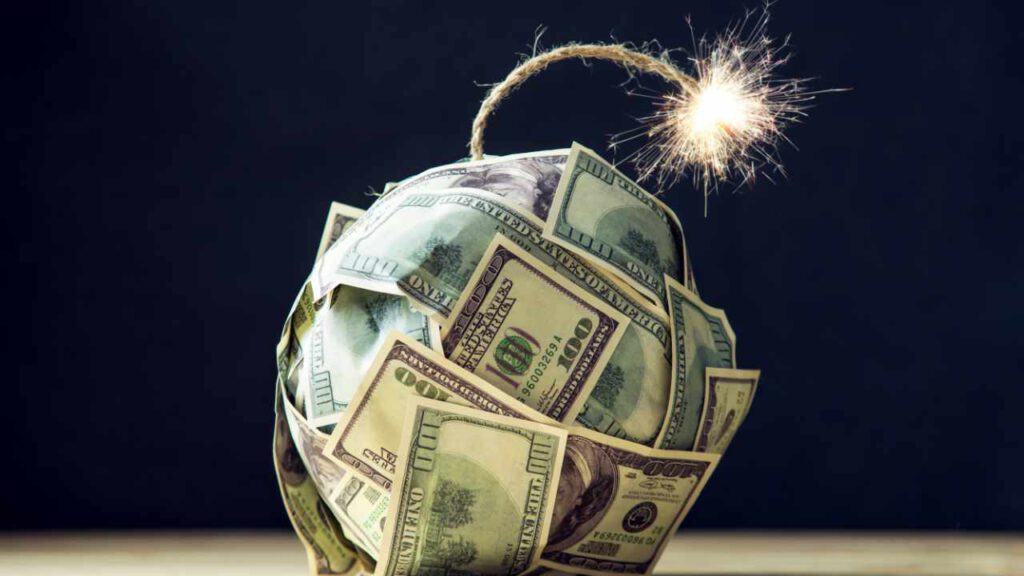
Economist Peter Schiff has warned that the U.S. dollar will crash. Noting that the U.S. is “in a much bigger fiscal mess than Great Britain,” with a much bigger debt problem, Schiff stressed: “Can we possibly repay this debt? Of course not. Repaying the debt is impossible. So, what’s going to happen? We’re going to default.”
Peter Schiff Discusses U.S. Dollar Crashing
Gold bug and economist Peter Schiff shared his outlook for the U.S. dollar in a podcast titled “When This Sucker’s Rally Ends, the Dollar Will Crash,” published Saturday. He explained that the U.S. has major problems that will lead to the crash of the U.S. dollar.
Referencing the situation in Britain, Schiff said the U.K. is concerned about increasing debts. The country’s debt-to-GDP ratio is around 85% and former Prime Minister Liz Truss “threatened to send British debt to GDP even higher,” the economist described, noting that “investors rightly dumped the pound.” However, he added: “They sold pounds for dollars … The irony is they were buying dollars despite the fact that the United States has an even bigger debt problem.”
The U.S. national debt is now above $31 trillion and the government ran a $1.38 trillion budget deficit in the fiscal year 2022. Schiff explained that the debt-to-GDP ratio in the U.S. is actually higher than 125%. When factoring in state and local debt, the ratio balloons to 140%, he detailed, elaborating:
We’re in a much bigger fiscal mess than Great Britain. So, selling pounds and buying dollars because you’re worried that Britain has too much debt is jumping from the frying pan into the fire.
Schiff stressed that it is ridiculous that people bought U.S. treasuries as a safe haven, adding that it is also absurd to sell a country’s currency due to debt problems and buy dollars when the U.S. has even more debt.
“In the U.K. pretty much all the debt is on a national level. They don’t have the states like we do and they don’t have all the municipalities, so we have so many levels of debt,” he pointed out. Emphasizing that governments are funding themselves from the same tax base, he opined:
These governments are trying to get blood from the same turnips. Because Americans are broke. We have no savings. So, can we possibly repay this debt? Of course not. Repaying the debt is impossible. So, what’s going to happen? We’re going to default.
Schiff Sees 2 Possible Ways the U.S. Can Default
The economist proceeded to detail that there are “only two possible ways we can default — the honest way and the dishonest way, but either is a disaster if you own U.S. treasuries.”
Schiff continued: “The honest way is just to admit that we can’t pay and we default. We restructure the debt and we tell our creditors.” However, he believes that politicians do not have the integrity to do it, noting:
They’re going to take the coward’s way out. They’re going to print. They’re going to inflate the debt away … It’s crazy for anyone to believe that the Fed is going succeed in reducing inflation back down to 2%. It can’t succeed.
He further cautioned that as the Federal Reserve raises interest rates, the problem gets bigger. His statement echoes a warning he made recently that the Fed’s action could lead to market crashes, a massive financial crisis, and a severe recession.
Schiff also tweeted Wednesday: “The U.S. merchandise trade deficit unexpectedly jumped by 5.7% in Sept., as imports rose by .8% and exports fell by 1.5%, breaking a five-month streak of falling trade deficits.” He concluded:
Now that the dollar is weakening, future trade deficit will widen, causing the dollar to fall further.
What do you think about the prediction by Peter Schiff about the U.S. dollar crashing? Let us know in the comments section below.
Image Credits: Shutterstock, Pixabay, Wiki Commons
Disclaimer: This article is for informational purposes only. It is not a direct offer or solicitation of an offer to buy or sell, or a recommendation or endorsement of any products, services, or companies. Bitcoin.com does not provide investment, tax, legal, or accounting advice. Neither the company nor the author is responsible, directly or indirectly, for any damage or loss caused or alleged to be caused by or in connection with the use of or reliance on any content, goods or services mentioned in this article.
Read disclaimer


